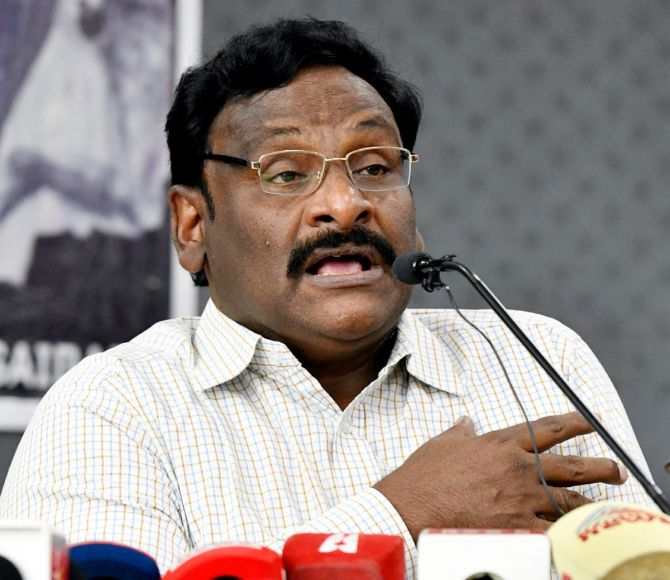The Supreme Court declined a Maharashtra government’s plea on Monday to stay the acquittal of former Delhi University professor G N Saibaba and others in the Maoist links case, stating that the Bombay High Court’s decision vindicating them of the charges is “prima facie well-reasoned.”
A bench of Justices B R Gavai and Sandeep Mehta, while admitting the state government’s appeal against the high court’s March 5 order, rejected the oral request of Additional Solicitor General S V Raju, representing the Maharashtra government, for an early listing of the appeal.
The court stated that the appeal would be heard in due course of time.
“The bench remarked, ‘Prima facie, we find that the high court order is well reasoned,’ with Justice Mehta adding, ‘it is a hard-earned acquittal. How many years this man spent in jail?’ Justice Gavai noted that there were two acquittal orders by two different benches of the high court,, with the apex court having previously interfered in one of them.
“Normally, we would have dismissed this appeal, but since this court has earlier interfered with the acquittal order, we will have to honour that and hence we are admitting the appeal for hearing. Otherwise, this is a very well-reasoned judgement by the high court. In ordinary course, we would not have entertained this appeal. The parameters of interference with acquittal orders are very limited,” the bench added.
Raju expressed the need to file documents related to the sanction obtained for prosecuting Saibaba under the anti-terror law UAPA. The bench reiterated the presumption of innocence in law and rejected the application for stay of the high court verdict to avoid confusion in the future.
Saibaba, who is wheelchair-bound, had been incarcerated in Nagpur Central Jail since his arrest in 2014.
In March 2017, a sessions court in Maharashtra’s Gadchiroli district convicted Saibaba and five others, including a journalist and a Jawaharlal Nehru University (JNU) student, for alleged Maoist links and activities amounting to waging war against the country.
However, on March 5, the Nagpur bench of the Bombay High Court acquitted Saibaba and others, citing the prosecution’s failure to prove the case beyond reasonable doubt.
The high court also invalidated the prosecution’s sanction under the Unlawful Activities (Prevention) Act.
Saibaba was released from jail two days after his acquittal. In October 2022, another bench of the high court had acquitted him, observing the trial proceedings were void due to the absence of a valid sanction under the UAPA. The Maharashtra government challenged this decision in the Supreme Court, which set aside the order in April 2023, directing the high court to rehear the appeal.




